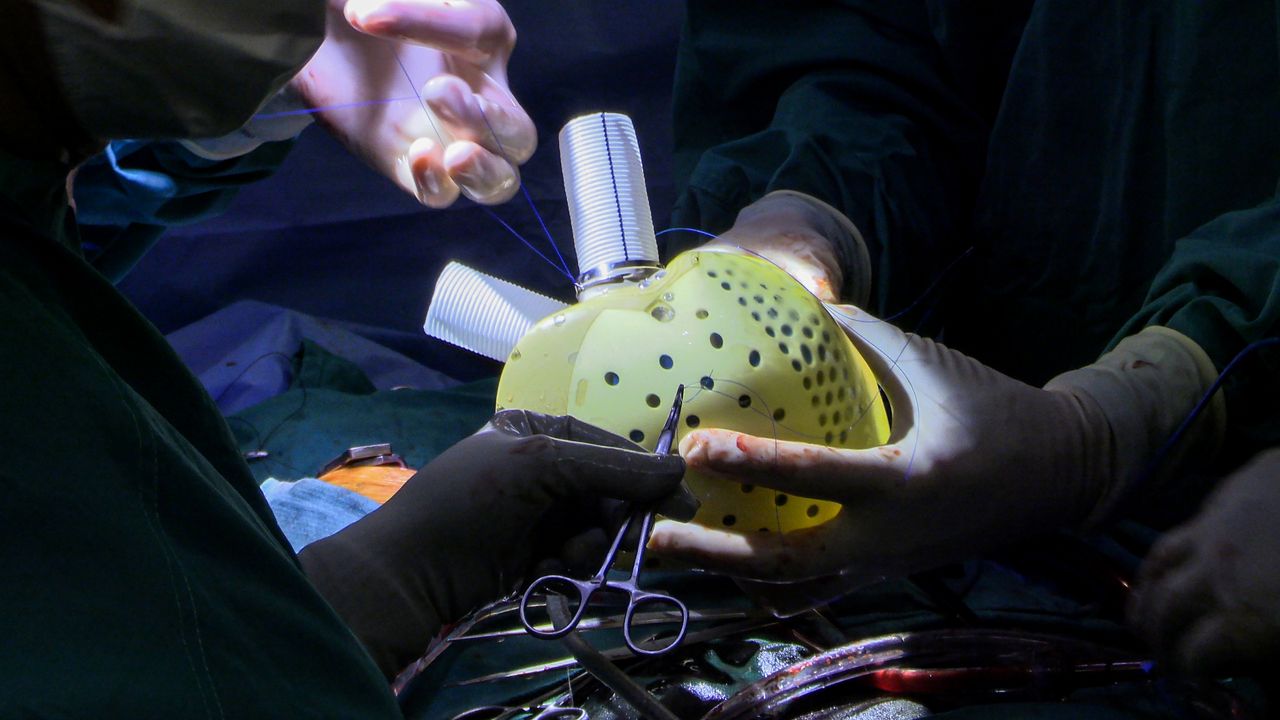DURHAM, N.C. — A team of surgeons at Duke University Hospital have made medical history.
On Monday, doctors performed the first successful artificial heart implant in the United States.
Matthew Moore, 39, is the first recipient of the CARMAT device, which is an implantable prosthetic with biological valves made from cow tissues.
Moore experienced major heart failure in June and was referred to Duke University Hospital. Nearly a month later he is recovering and his heart pumps steadily from inside the walls of his hospital room.
Staff who helped to complete the surgery participated in a Zoom call about the historic operation Thursday afternoon. Moore's wife, Rachel Moore, was also in attendance.
She says they were walking into unknown territory. Rachel Moore said, "Between them and God it is an absolute miracle that Matthew is still with us today."
The Moores are from Shallotte, North Carolina.
The surgeons who carried out the operation revealed this is not a not a permanent transplant. It will last for three to four months until Mr. Moore can receive a real heart.
Rachel Moore spoke about going to check on him early Thursday morning, three days after his life-saving surgery.
She said, "The time that I have had with him this morning, I honestly didn’t do anything but just stare at him. I am just so grateful".
The CARMAT is attached to half of his heart and requires an external power supply to keep it powered.
Surgeons say Moore has an extensive amount of rehabilitation ahead of him.
He will remain at Duke Hospital for the foreseeable future.
Dr. Jacob Schroder was one of the two surgeons who conducted the procedure and is also the surgical director of the Heart Transplant Program at the hospital. The doctor explained a normal heart transplant, one in which a real beating heart is transferred into a body, is actually a simpler task than the one completed on Monday.
Despite the painstaking of the medical feat they have done, Schroder is glad to see Moore's body responding so well to the CARMAT and is ready to help his patient start living his life again. Schroder said, "He has a lot of work left to do with us but I think he can do it, and he is doing great."
The operation took over eight hours.
According to a press release from hospital spokespeople, "If the device receives FDA approval, it would provide a bridge to transplant for patients whose hearts require assistance to pump blood through both chambers. Current technology – notably a left-ventricular assist device (LVAD) — supports just one chamber. Duke was among just three transplant centers in the United States selected to join the device study, and the procedure team received specialized training to prepare for the implant surgery."
The Supplemental Heart Company has undergone studies in Europe, where it is used legally used on operating tables.
In 2020, the artificial heart makers received FDA approval for studies in America to start. The study is evaluating if the artificial heart is a legitimate preservation of life tool before transplant.



